
The CLPNA’s Self-Employed Practice guideline was updated in April. This guideline outlines the professional expectations and obligations of registrants who are self-employed or are considering self-employment in LPN practice. This practice guideline is not a substitute for legal or business...
Learn more
Can LPNs Administer Medications via IV Direct Push?
Registrants and other stakeholders can contact the Practice Department at the College of Licensed Practical Nurses of Alberta (CLPNA) to receive clarification on Licensed Practical Nurse (LPN) practice. In Practice Corner, we’ll share some frequently asked questions and our answers....
Learn more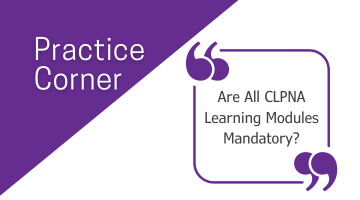
Are All CLPNA Learning Modules Mandatory?
Registrants and other stakeholders can contact the Practice Department at the College of Licensed Practical Nurses of Alberta (CLPNA) to receive clarification on Licensed Practical Nurse (LPN) practice. In Practice Corner, we’ll share some frequently asked questions and our answers....
Learn more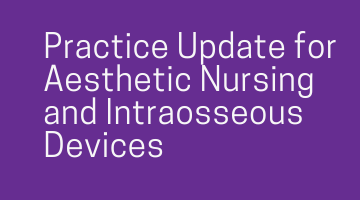
The College of Licensed Practical Nurses of Alberta (CLPNA) has updated policies and guidelines to better align with the Health Professions Restricted Activity Regulation. These changes, listed below, cover two areas: the removal of the supervision requirements for aesthetic nursing...
Learn more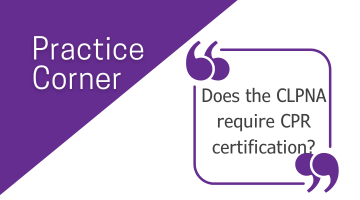
Does the CLPNA Require CPR certification?
Registrants and other stakeholders can contact the Practice Department at the College of Licensed Practical Nurses of Alberta (CLPNA) to receive clarification on Licensed Practical Nurse (LPN) practice. In Practice Corner, we’ll share some frequently asked questions and our answers....
Learn more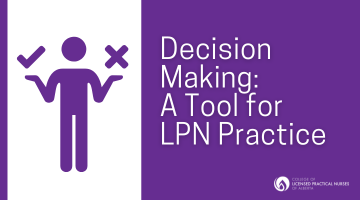
The CLPNA’s LPN Practice Decision Making Tool can help determine if it is appropriate for an individual LPN to perform a specific nursing activity. Along with the Code of Ethics, standards of practice, policies, practice guidelines, and info sheets, the...
Learn more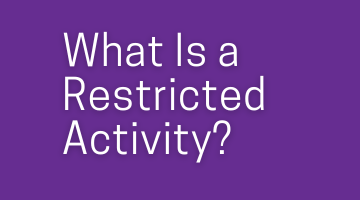
LPNs Are Authorized to Perform Certain Restricted Activities. How Do You Know Which Activities You Can Perform? A restricted activity is a high-risk health service that can only be performed by an authorized healthcare professional. The Health Professions Restricted Activity...
Learn more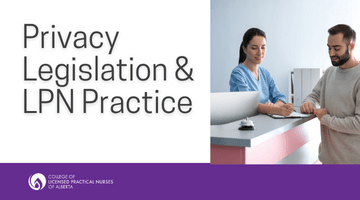
This article provides general advice regarding privacy legislation and LPN practice. It is not a substitute for legal consultation. In 2023, the College of Licensed Practical Nurses of Alberta (CLPNA) received 19 complaints related to breaches of privacy and confidentiality....
Learn more
